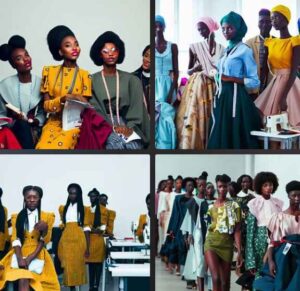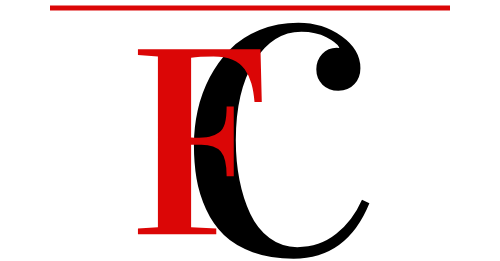Fashion is a thriving industry in Nigeria, and as such, many individuals are interested in pursuing a career in this exciting and vibrant field. To help you make an informed decision about which fashion school to attend, this article will provide an overview of the top fashion schools in Nigeria and discuss their tuition fees.
Top Fashion Schools in Nigeria
-
Lagos State University (LASU)
Lagos State University is a well-known public university offering a variety of fashion-related programs. Their fashion design program emphasizes creativity, technical skills, and hands-on experience, ensuring students are well-prepared for the fashion industry. Tuition fees for LASU’s fashion programs vary depending on the program, but they generally range from ₦200,000 to ₦400,000 per year.
-
Yaba College of Technology (YABATECH)
YABATECH is a prominent polytechnic institution in Nigeria that offers diploma and certificate programs in fashion design and clothing technology. Tuition fees for these programs range from ₦50,000 to ₦100,000 per year.
-
University of Lagos (UNILAG)
UNILAG offers a Bachelor’s degree in Creative Arts with a focus on fashion design. This comprehensive program covers fashion illustration, textile design, and garment construction. Tuition fees for this program range from ₦150,000 to ₦300,000 per year.
-
Noble Step Gold Fashion School
This private fashion school in Lagos provides courses in fashion design, pattern drafting, and tailoring. The tuition fees for their programs range from ₦80,000 to ₦150,000 per year.
-
Zaris Fashion and Style Academy
Zaris Fashion and Style Academy is a popular fashion school in Lagos, offering a wide range of courses in fashion design, pattern making, and tailoring. Tuition fees for their programs range from ₦200,000 to ₦350,000 per year.
-
Supreme Tailoring and Fashion Design Academy
Located in Abuja, Supreme Tailoring and Fashion Design Academy offer courses in fashion design, tailoring, and pattern making. The tuition fees for their programs range from ₦100,000 to ₦250,000 per year.
-
Valisimo Fashion School
Valisimo Fashion School, based in Lagos, offers various fashion design courses and tailoring classes. Tuition fees for their programs range from ₦150,000 to ₦300,000 per year.
-
Oscar Temple Institute of Fashion
Oscar Temple Institute of Fashion, located in Lagos, offers comprehensive courses in fashion design, pattern making, and garment construction. Tuition fees for their programs range from ₦150,000 to ₦300,000 per year.
-
Rings and Bands Fashion School
Rings and Bands Fashion School, situated in Abuja, offers a variety of courses in fashion design, tailoring, and pattern drafting. The tuition fees for their programs range from ₦100,000 to ₦250,000 per year.
-
Ginani Fashion School
Ginani Fashion School, based in Lagos, provides training in fashion design, pattern making, and sewing. Tuition fees for their programs range from ₦200,000 to ₦350,000 per year.

Factors to Consider When Choosing a Fashion School
-
Tuition Fees
As you can see, tuition fees vary greatly among fashion schools in Nigeria. Make sure to consider your budget when choosing a school, but also remember that the cheapest option may not always be the best.
-
Course Offerings
Different schools offer different programs and courses, so it’s important to research each school’s curriculum to ensure it aligns with your interests and career goals.
-
Location and Facilities
Consider the location of the school and the quality of its facilities, as these factors can significantly impact your overall experience and success in your chosen program.
-
Reputation and Alumni Network
The reputation of the school and the success of its alumni can play a crucial role in your future career prospects. Choose a school with a strong track record in the fashion industry and a supportive alumni network to help you make connections and find job opportunities.
-
Government Support and Initiatives for Fashion Education in Nigeria
The Nigerian government recognizes the importance of the fashion industry and has implemented various initiatives to support its growth. Some of these initiatives include grants and scholarships for fashion students, as well as partnerships with international fashion schools to provide Nigerian students with access to global resources and opportunities.
Conclusion
Choosing the right fashion school in Nigeria is an important decision that can significantly impact your future career. By considering factors such as tuition fees, course offerings, location, facilities, reputation, and alumni network, you can find the best fit for your needs and aspirations. With the support of the Nigerian government and the growing prominence of the fashion industry, there’s never been a better time to pursue your passion for fashion in Nigeria.
ALSO SEE: Difference Between Tailor and Fashion Designer
FAQs
-
Is a degree or certificate necessary to succeed in the Nigerian fashion industry?
While formal education can provide valuable skills and knowledge, it is not always necessary to succeed in the fashion industry. Many successful designers are self-taught or have gained experience through internships or apprenticeships.
-
Are there scholarships available for fashion students in Nigeria?
Yes, there are scholarships and grants available for fashion students in Nigeria, both from the government and private institutions. Make sure to research and apply for any financial assistance you may be eligible for.
-
What career options are available for graduates of fashion schools in Nigeria?
Graduates of fashion schools can pursue a variety of careers, including fashion design, pattern making, tailoring, fashion marketing, fashion journalism, and fashion merchandising.
-
Can I study fashion design part-time?
Many fashion schools in Nigeria offer part-time programs or short courses for individuals who wish to study fashion design while working or managing other commitments.
-
How long does it take to complete a fashion design program in Nigeria?
The duration of fashion design programs in Nigeria varies depending on the institution and the level of the program. Certificate and diploma programs typically take 1-2 years to complete, while Bachelor’s degree programs usually take 4 years.


Leave a Reply